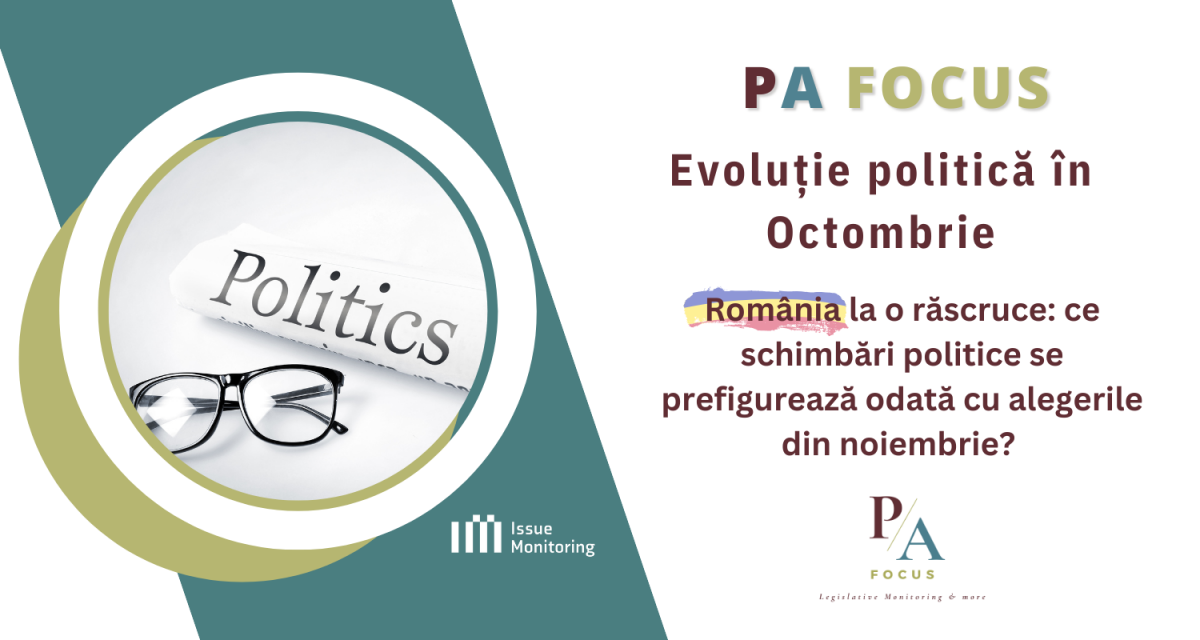
As Romania heads into a pivotal election season, the political landscape is more fragmented than ever. The ongoing breakdown of the PSD-PNL coalition, rising tensions within and among parties, and allegations of electoral disinformation paint a picture of a country at a crossroads. With the first round of presidential elections on the horizon, Romania’s political scene is marked by uncertainty and shifting alliances that could shape the nation’s future direction. This article delves into the key developments of the past month and offers insights into what lies ahead as Romanians prepare to cast their votes.
Highlights of the Previous Months
1. The Governing Coalition in Disarray
October has brought Romania’s political climate to a pivotal point as the alliance between the Social Democrats (PSD) and the National Liberal Party (PNL) approaches its end. With PSD rejecting PNL’s proposal for the upcoming parliamentary elections, the coalition is now only a shadow of its former self, operating on a “technical” basis. PNL has stayed in government, positioning itself as a safeguard against what it describes as PSD’s resistance to reforms and contributions to poverty. The political atmosphere is tense, with accusations of manipulation, power grabs, and electoral maneuvers circulating.
PNL leader Nicolae Ciucă has accused PSD’s Marcel Ciolacu of collaborating with George Simion (AUR) for the presidential runoff. Allegations have emerged suggesting that PSD members are working with AUR to push Romania toward a model resembling Hungary’s illiberal government. These accusations have set a combative tone, and with PSD denying any intent to align with AUR, the coalition’s future remains uncertain.
2. Nicușor Dan: A Catalyst for Right-Wing Unity?
A surprising figure, General Mayor Nicușor Dan of Bucharest, has gained political traction as he pushes for right-wing cohesion. His recent initiative for a local referendum, addressing city budget allocations and the approval of building permits, has rallied various political forces around him. This referendum also includes a PSD-proposed question on drug prevention, highlighting Romania’s growing national security concerns.
Dan has openly advocated for a unified right-wing front in the presidential race, a sentiment gaining momentum among parties like USR and UDMR. However, USR President Elena Lasconi has conditioned collaboration with PNL on a change in its leadership, a prospect PNL may resist. Yet, Ciucă’s commitment to aligning with all right-wing forces shows a willingness to consider the future of a right-wing coalition. If such an alliance holds, it could play a pivotal role in Romania’s governance post-elections.
3. Disinformation and Scandal in the Electoral Campaign
As the campaign season intensifies, accusations of disinformation have surfaced, adding fuel to Romania’s already charged political environment. Independent candidate Mircea Geoană, formerly a frontrunner, has been accused by Elena Lasconi of collaborating with a network allegedly aimed at spreading false information to damage opponents. Dubbed the “bots farm” scandal, this controversy has further implications as investigative reports from Digi24 spotlight attacks on Ciucă and Lasconi.
With the Communications Administration and Regulation Authority (ANCOM) stepping in to investigate, the issue of electoral interference has cast a shadow over the presidential race. For Geoană, this scandal has significantly impacted his support base, reducing his chances of reaching the second round of the presidential elections and calling into question the integrity of Romania’s democratic process.
What to Expect this Month
First Round of the Presidential Elections on November 24
According to recent polls, PSD’s Marcel Ciolacu leads the presidential race, with AUR’s George Simion close behind. In a separate poll by Newsweek Romania, Ciolacu and PNL’s Nicolae Ciucă are expected to advance to the second round. Geoană’s support has plummeted due to the disinformation scandal, while Simion’s numbers have surged as his base consolidated votes initially expected for Diana Șoșoacă, whose candidacy was annulled.
The uncertainty of polling results, coupled with voter skepticism about campaign promises, indicates a shifting public focus from rhetoric to tangible outcomes. This sentiment may shape the final electoral results, putting pressure on candidates to strengthen their public profiles and present authentic, effective policy proposals.
Conclusion
As Romania’s political future hangs in the balance, the approaching presidential elections highlight the potential for significant shifts within the coalition government and the right-wing factions. For PNL and PSD, navigating these tensions will determine their strategies and alliances in the aftermath of the elections. Meanwhile, right-wing parties face a critical test in rallying around a shared platform and leaders like Nicușor Dan to forge a cohesive political front.
November 24 will not only be a test of individual candidates’ appeal but also of the public’s trust in Romania’s broader political framework. In an atmosphere marked by distrust and scandal, candidates will need to adapt to an electorate increasingly focused on accountability and genuine policy impact.
Stay Informed! As the legislative landscape evolves, Issue Monitoring is here to keep you updated with timely alerts and insights on these significant legislative and political shifts.
Do you need a smarter solution to keep up with legislation, save time, and never miss an important update? Discover Issue Monitoring!


